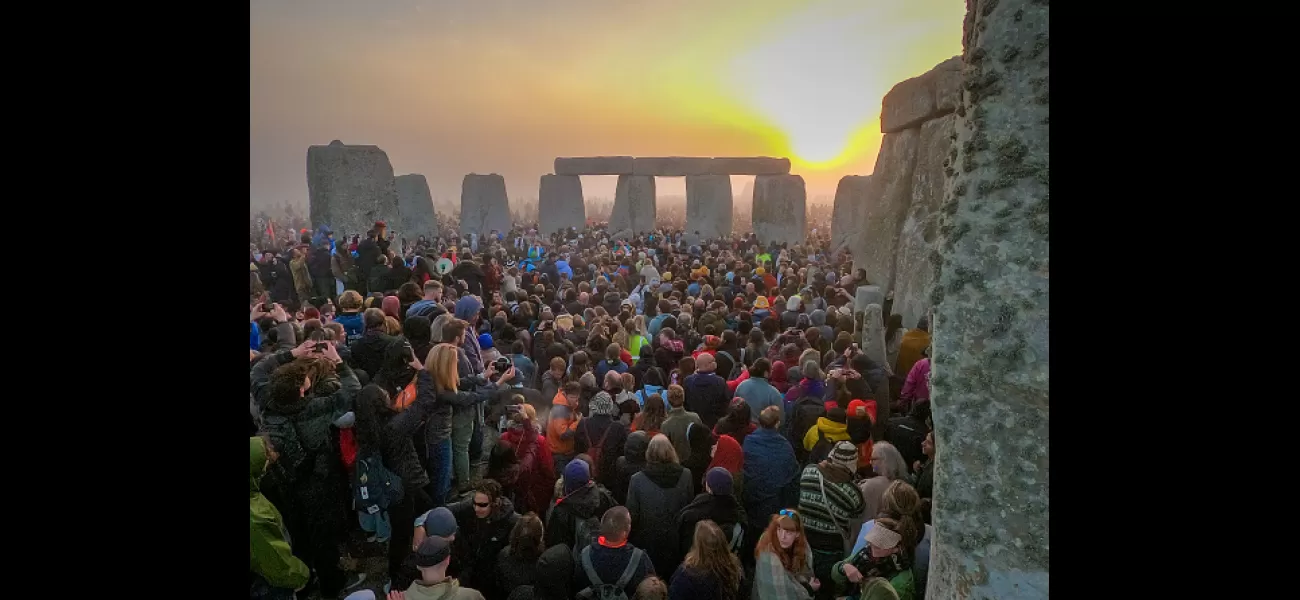2023 summer solstice is a day of longest daylight and is celebrated with outdoor activities.
Today is a special occasion to celebrate.
June 20th 2023.

Today is the Summer Solstice, a time for celebration and festivities. For thousands of years, people have gathered at Stonehenge in Wiltshire to watch the sunrise and observe the pagan festivals associated with the solstice. But what is the summer solstice and why have people been celebrating it for so long?
The summer solstice is the longest day of the year, falling on June 21. It was originally celebrated by the Celtic people, who populated Britain and much of North West Europe during the Iron Age. To them, the year was divided into eight segments and eight festivals were created to honour and rejoice in nature.
The two solstices, midwinter and midsummer, mark the shortest and longest days of the year. There are also two equinoxes, and the ‘cross-quarters’, which are the four great fire festivals of the earth’s cycle, falling at seasonal peaks.
Today, people still celebrate the summer solstice as a time to recognise their achievements and be grateful for what they have in life. Traditionally, Celtic people lit fires on hilltops, stayed up all night to watch the sunrise, and celebrated with carnivals, dancing, and candlelit processions. It was also believed to be a time when the veil between worlds was thin, making spiritual rituals and meditations more powerful.
To celebrate the summer solstice, you don’t need to throw a fire festival. Instead, try one of these activities. Stay up all night and watch the sun rise, gather with friends for a candlelit procession, decorate your home with wreaths of summer flowers, celebrate with fire, keep a candle burning and express gratitude whenever you see it, drink herbal teas, and treat yourself to a tarot reading.
The summer solstice is a time to recognise your success and celebrate all that you have achieved. Whether you choose to observe it with a big celebration or a small personal ritual, take some time to revel in the joy of the season.
The summer solstice is the longest day of the year, falling on June 21. It was originally celebrated by the Celtic people, who populated Britain and much of North West Europe during the Iron Age. To them, the year was divided into eight segments and eight festivals were created to honour and rejoice in nature.
The two solstices, midwinter and midsummer, mark the shortest and longest days of the year. There are also two equinoxes, and the ‘cross-quarters’, which are the four great fire festivals of the earth’s cycle, falling at seasonal peaks.
Today, people still celebrate the summer solstice as a time to recognise their achievements and be grateful for what they have in life. Traditionally, Celtic people lit fires on hilltops, stayed up all night to watch the sunrise, and celebrated with carnivals, dancing, and candlelit processions. It was also believed to be a time when the veil between worlds was thin, making spiritual rituals and meditations more powerful.
To celebrate the summer solstice, you don’t need to throw a fire festival. Instead, try one of these activities. Stay up all night and watch the sun rise, gather with friends for a candlelit procession, decorate your home with wreaths of summer flowers, celebrate with fire, keep a candle burning and express gratitude whenever you see it, drink herbal teas, and treat yourself to a tarot reading.
The summer solstice is a time to recognise your success and celebrate all that you have achieved. Whether you choose to observe it with a big celebration or a small personal ritual, take some time to revel in the joy of the season.
[This article has been trending online recently and has been generated with AI. Your feed is customized.]
[Generative AI is experimental.]
0
0
Submit Comment





